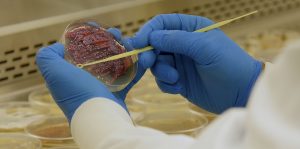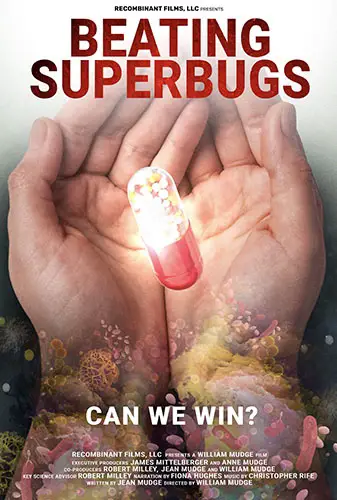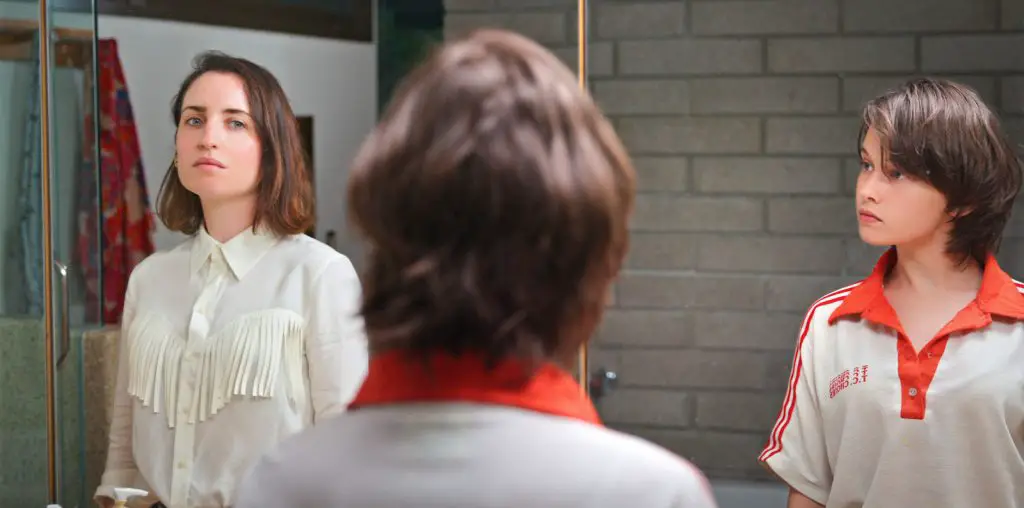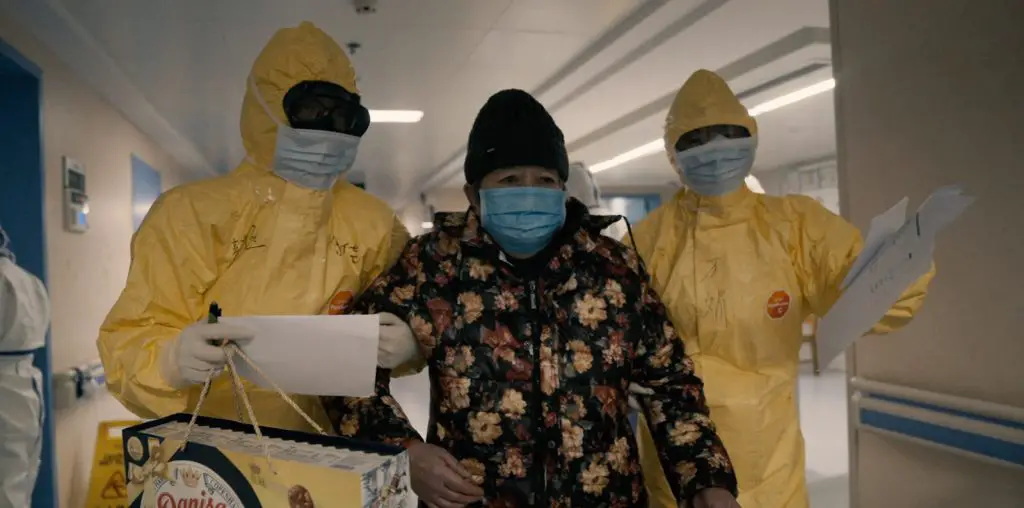
As COVID quickly spread across the world, every one of us got an instant education into the world of viruses and combating them. As the first vaccines are being rolled out, there’s a more significant battle looming over the horizon. In the documentary Beating Superbugs: Can We Win? director Bill Mudge shifts our focus to the micro-universe of bacteria and antibiotics. The “Superbugs” in question are the most harmful bacteria walking the earth, including MRSA (staph), Gohnorria, and tuberculosis, just to name a few.
The film’s premise is simple. The world has become complacent and over-reliant on antibiotics. When Alexander Fleming developed penicillin in 1928, humanity won a significant victory in the war against harmful bacteria. Over the next hundred years, we developed a false sense of security in this fight, and we’re falling asleep at the wheel.
So what’s the problem? As bacteria mutate, they slowly become resistant to these antibiotics, and as their use increases, the faster the bacteria becomes resistant. Add to this that it takes 15 years to discover, research, develop, and approve a new antibiotic and a bacteria only two years to show signs of resistance. Mudge asserts that we are needlessly dispensing antibiotics at an alarming and unnecessary rate. The health care industry in the U.S. relies heavily on antibiotics dispensing them like candy. Rather than thoroughly cleaning its hospital beds, antibiotics are there to catch anything they missed.
As people, our mentality is that we beg our doctors to prescribe antibiotics for the littlest thing if we’re ill. Because of its lack of overt side effects, they acquiesce. If we can’t get a prescription, we’ll just buy it off the street. Strangely the problem also exists in our food. The livestock industry discovered that antibiotics increase the growth rate in beef and poultry livestock. Antibiotics make cows and chickens grow bigger and faster (see Super Size Me 2). Though the United States has moved away from this, livestock-dependent countries continue the practice to compete.

“The world has become complacent and over-reliant on antibiotics.”
Beating Superbugs: Can We Win? carries with it a very stern warning about our post-COVID future. But unlike most doom-and-gloom documentaries, there is hope. In fact, there is a reasonable plan to save all of humanity (maybe that’s a little too hyperbolic).
I’d describe Mudge’s documentary as low frills. It is incredibly academic and low-budget in presentation, especially compared to movies you have seen on HBO or Showtime. It reminds me of the educational films from high school and college relying on a pleasant-sounding narrator, stock video footage for variety, and low-budget graphics and animation.
Quality aside, Beating Superbugs: Can We Win? is informative and goes pretty deep into the subject, and well organized and intriguing in its presentation. There’s a vast army of industry experts from the medical research field. The throughline is average guy Tom Patterson, who contracted the Iraqibacter infection in Egypt — an infection that many of our troops contracted during the Iraq war. We follow his progress to a university hospital in San Diego, and from here, our world is opened to the bigger problem of Multi-Drug-Resistant tuberculosis and Gohnorria.
Mudge makes you think that if COVID was terrible, just wait. It’s only a matter of time when the Superbug takes over, and we discover we’re ill-prepared to take it on. The upside is we can do something about it. Knowledge is critical, making Beating Superbugs: Can We Win? a vital watch.

"…informative and goes pretty deep into the subject, and well organized and intriguing..."


